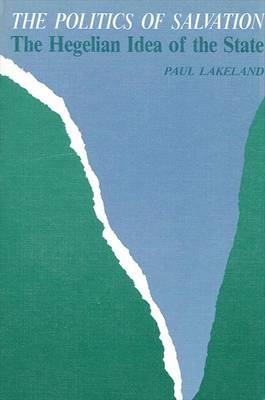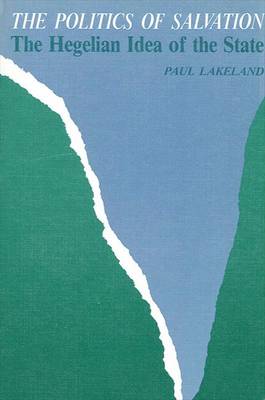
- Afhalen na 1 uur in een winkel met voorraad
- Gratis thuislevering in België vanaf € 30
- Ruim aanbod met 7 miljoen producten
- Afhalen na 1 uur in een winkel met voorraad
- Gratis thuislevering in België vanaf € 30
- Ruim aanbod met 7 miljoen producten
Omschrijving
The Politics of Salvation takes a radical stance: it focuses on the significance of the state in the Hegelian system when it is viewed as inspired and motivated by the Christian notion of God. The book thus makes connections between Hegel's political philosophy and his explicit appropriation of Christianity's incarnational mode of thinking. In unfolding the implications of this position, Lakeland shows how Hegel's thought can offer the basis for a non-dualistic account of the human being as religious and political. This conjunction allows for a theology which sees politics as the arena of salvation providing a practical religious outlook relevant to the contemporary world and, in particular, to the commitments of Latin America's liberation theology.
The author writes: "If Hegel can be understood (as he frequently expressed himself) as expressing conceptually in speculative philosophy what religion expresses in the form of image and representation, then the covenantal demands of justice and freedom from oppression, the Christian struggle for a free and authentic humanity, and Christian hope in the kingdom of God, will all find their counterpart in the Hegelian system." Thus this Hegelian political theology can "illuminate the connections between the expectation of salvation and the struggle for liberation."
Specificaties
Betrokkenen
- Auteur(s):
- Uitgeverij:
Inhoud
- Aantal bladzijden:
- 197
- Taal:
- Engels
- Reeks:
Eigenschappen
- Productcode (EAN):
- 9780873958479
- Verschijningsdatum:
- 30/06/1985
- Uitvoering:
- Paperback
- Formaat:
- Trade paperback (VS)
- Afmetingen:
- 152 mm x 229 mm
- Gewicht:
- 281 g

Alleen bij Standaard Boekhandel
Beoordelingen
We publiceren alleen reviews die voldoen aan de voorwaarden voor reviews. Bekijk onze voorwaarden voor reviews.









